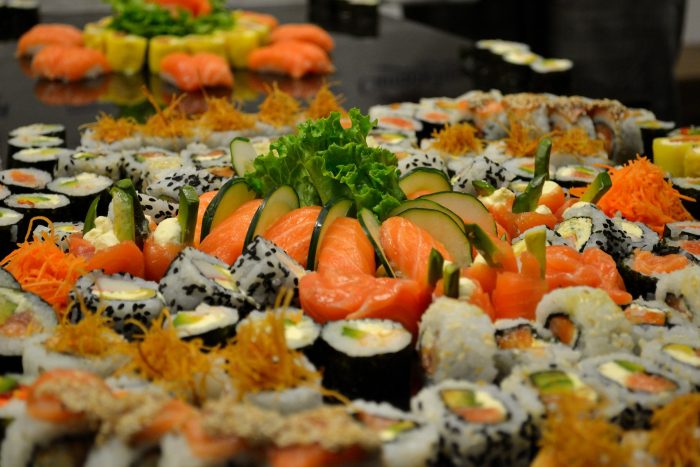D. None of the Above: The imperfect process of selecting singers, sushi and sediment
By Daniel Dunaief

If you’ve ever watched the show “The Voice,” which teenage sensation Carter Rubin from Shoreham won last year, you know the format involves celebrity judges making blind choices during a prolonged audition process.
With their backs to the performers, the judges listen to the contestants sing several bars of familiar songs, sometimes swaying, sometimes mouthing the words, until they hear something in the voices that clicks or that they think they can improve to lead these aspiring artists to the promised land of a music contract, fame and fortune.
The process is imperfect, as are most decisions we make.
The judges don’t get to rate everyone, listening to the entire array of singers before rank ordering or assembling their team. As they go, they add aspiring musicians to their teams, competing against the other judges to encourage performers to work with them.
This process is akin to so many others in so many contexts.
Many years ago, I attended a spectacular and extravagant holiday party for Bloomberg News at the Museum of Natural History. The organization had rented the entire museum during after hours. Fortunately, I brought my then-girlfriend, who is now my wife, to that event, which has given us a party to remember over two decades later.
Anyway, each room had a performer and a collection of tables with mouth-watering food. Hungry and maneuvering slowly through each room, we probably ate more than we should have in the first few rooms, until we understood the spectacular assortment of foods, culminating with sushi under the blue whale in the main room.

Having eaten more than I should prior to reaching the whale, I could only sample a few pieces of sushi before shutting down the food consumption. Well, that was true until we waited for the one person in the coatroom who was matching tickets to coats. At that point, servers brought trays of dark and white chocolate-covered strawberries up and down the line.
The point, however, is that the imperfect choices my wife and I made earlier in the evening affected how much we could eat as the night wore on.
In the last few months, I spoke with several researchers in Stony Brook University’s Department of Geosciences, including Joel Hurowitz and Scott McLennan. They are working with a rover on Mars that is choosing rocks in the Jezero crater, putting together a collection of samples that will, one day, return with a round trip mission to the Red Planet.
They can’t sample every rock that might reveal something about Mars, indicating whether life could have existed on the planet billions of years ago.
The decision to choose something in the present, like the rock in front of the rover on Mars, the current singer who is living out his or her dream on “The Voice,” or the morsel of food in a buffet that stretches throughout a museum, can limit the ones those same people have in the future.
Hopefully, along the way, we learn from the decisions we’ve made, the ones that work out and the ones that don’t, that enable us to improve our ability to make informed choices.
And, even if whatever we chose may not be exactly what we thought it was, we, like the judges on “The Voice,” might be able to mold the raw materials of our lives into something even better than we’d initially imagined.







